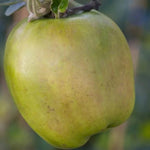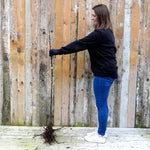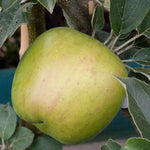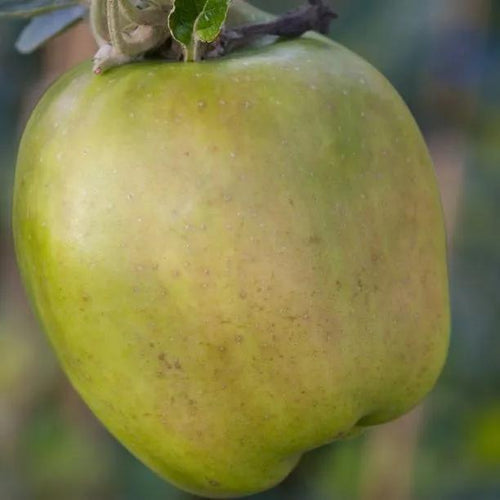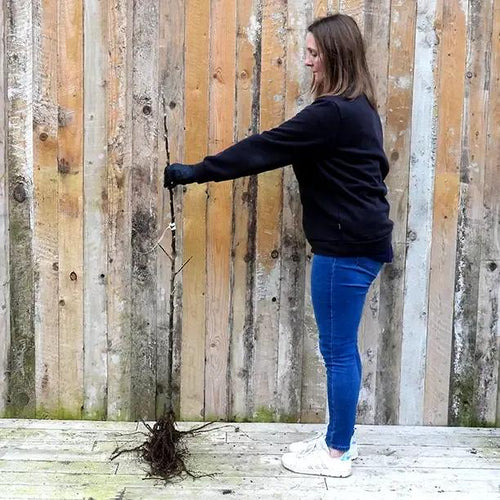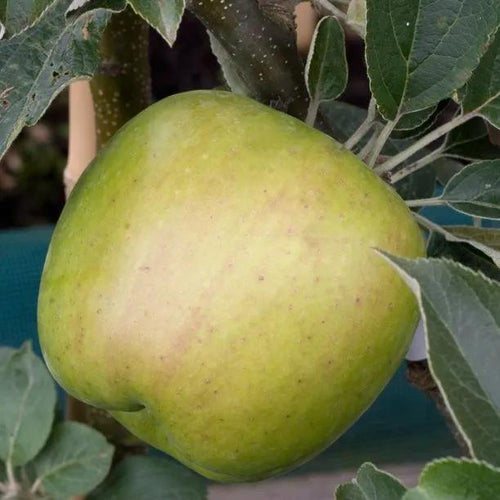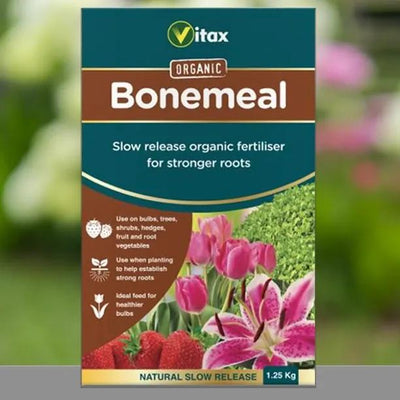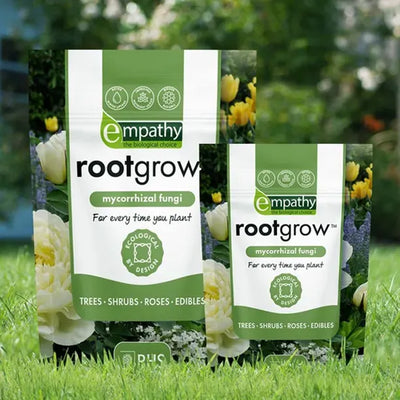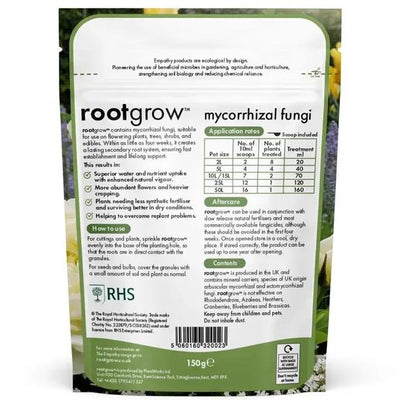Lord Derby Apple Trees
Lord Derby is a cooking apple tree that has withstood the test of time. Sometimes known as London Major, Lord Derby is still grown commercially today. The tree produces lavish crops of initially shiny green fruit that later bulge and become golden yellow, sometimes with russet patches. They're fine to use in September when still green, usually with plenty of brown sugar as the younger fruit are very acid. Taking some of the earlier fruit like this will keep your tree cropping well into December. The flesh of the mature yellow fruit's softer and slightly sweeter, with a delicate grain that holds its shape after baking. Lord Derby is exceptionally hardy and will succeed in Northern England and Scotland, as well as in troublesome frost pockets in the south. They're resistant to all the major apple tree diseases and will even tolerate damp, heavy clay soil so long as it's not too waterlogged.
Browse our full range of apple trees
History & Trivia
The credit for raising this tree goes to Mr. Witham of Cheshire, who managed a nursery there. He documented it in 1862, but it's questionable if he actually raised it as he could only confirm one of its parents, the russet-gold cooker Catseye.
Apple Tree Pollination guide for Lord Derby
Flowers begin to come out in late May and we recommend selecting any of the trees listed as mid or late season pollinators in our Apple Tree Pollination guide as a blooming partner. Lord Derby's ability to pollinate itself is limited and in any case, better fruit generally results from cross-pollinating apples. The long flowering periods of crab apple trees make them an excellent all round pollen supplier; the most prolific and attractive are the Hupehensis and Golden Hornet.
Rootstocks for Lord Derby
As standard, we use MM106 rootstocks for all of our apple Trees. The MM group of rootstocks were created specifically for use in the UK and produces healthy, heavy cropping trees in our weather conditions and soil. MM106's growth is classed as semi-vigorous, producing a medium sized tree at a rate that is practical for gardeners as it can also be trained into a fan, cordon or espalier. A half standard Lord Derby will grow to about four metres in width and height. A bush is shorter and requires a little more attention and pruning to maintain a good ratio of second-year branches, which carry the fruit. Cordons are ideal for the enthusiastic fruit gardener in a small garden.

 Secure, One-Tap Checkout
Secure, One-Tap Checkout
 Hand Picked, Delivered to Your Door!
Hand Picked, Delivered to Your Door! 1 Year Bareroot Guarantee
1 Year Bareroot Guarantee